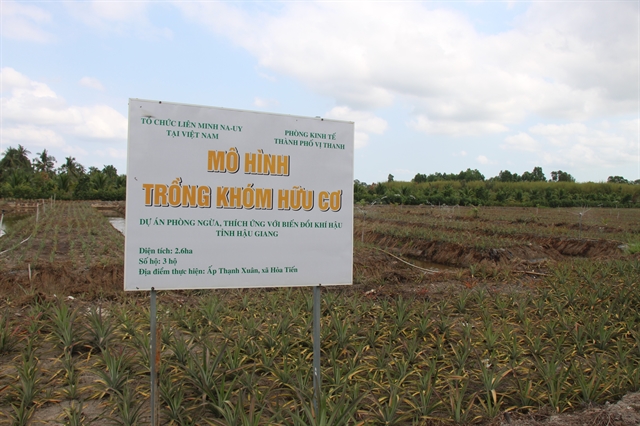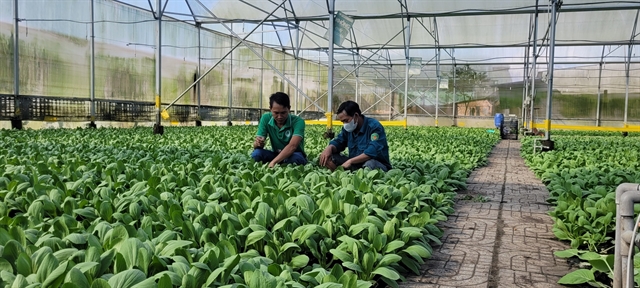 Society
Society

 |
| An agricultural cooperative in Bà Rịa-Vũng Tàu Province. The success of cooperatives does not come only from revenue, tax payment or profit but also from their social responsibility and sustainable development. — VNA/VNS Photo Hoàng Nhị |
HÀ NỘI — Improving the operation model of co-operatives is critical to promote the development of the collective economy and extend their reach to the global level, experts have said.
A report by the International Cooperative Alliance showed that the top 300 cooperatives in the world are operating in 27 countries with an estimated total revenue of US$2.409 trillion in 2021, 7.2 times higher than Việt Nam’s gross domestic product (GDP).
To date not one Vietnamese cooperative is on that list.
Under Resolution No. 20-NQ/TW Việt Nam wants to have 20 per cent of the population working in organisations within the collective economy by 2045.
In addition, Việt Nam aims to have at least three cooperatives in that list of 300 largest cooperatives in the world by then.
Võ Trí Thành, director of the Institute for Brand and Competitiveness Strategy, said that it is necessary to have a plan to promote the development of the collective economy and cooperatives in both quantity and quality.
Improving the operation model of cooperatives is an important factor, for efficiency and to contribute to economic growth, Thành said, adding that it was also critical to enhance the competitiveness and capacity of the cooperatives with a focus on talents.
According to Võ Kim Sa, Vice Principal of the School of Agriculture Management and Rural Development 2, cooperatives should operate on the basis of equality, fairness, solidarity and inclusion.
The success of cooperatives does not come only from revenue, tax payment or profit, but also from their social responsibility and sustainable development, Sa said.
For example, FrieslandCampina, a Dutch multinational dairy cooperative with 9,417 member dairy farms and 14,634 member dairy farmers, set goals for green growth through the reduction of greenhouse gas emissions in the raising of cows, in milk storage, processing and distribution and in packaging recycling.
Bùi Thị Nga from Việt Nam Academy of Agriculture said that sustainable development and social responsibility are parts of successful cooperatives in the world, which can be the glue that binds rural communities together.
Data from the General Statistics Office of Việt Nam showed that the collective economy and cooperatives are responsible for around 4 per cent of the country’s GDP.
There are around 31,000 cooperatives nationwide. Việt Nam aims to have 45,000 cooperatives by 2030. — VNS




